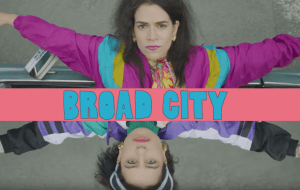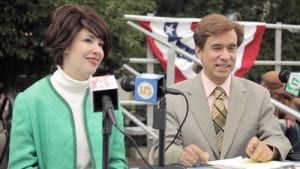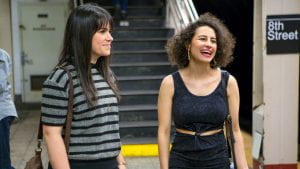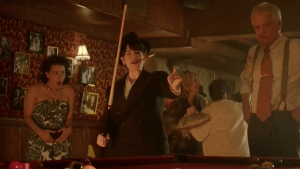Saved the best for last. For this final blog post, I’m going to be writing about the cinematography of Orange is the New Black, focusing on the seventh episode of Season 1, ”Blood Donut.”
The color scheme of the show has the most visual definition, or lack thereof, of any of the other aspects of visual design in the show. The show features very little orange or black, in fact, the most prominent color present is beige. Beige is not only the color of the prisoners’ uniforms, but it also saturates the walls and floors of Litchfield. Even the grass within the prison fences is slightly dead rendering it brown, and the trees surrounding the prison are winterized. Even outside, muted earth tones remain the dominant color scheme. In the outside world, colors are far more pronounced and are clearly brighter. Earth tones seemingly remain the primary color scheme, dark brown and beige being replaced with cream and yellow, but there are flashes of bright colors that break this monotony. These are absent in the prison. Lighting contributes to this visual difference between the two places: in the prison lighting is almost constantly white fluorescent, which is colder, and natural light is almost always absent. Outside of prison, lighting is either warm natural daylight or warm, dim, and yellow incandescent lighting.
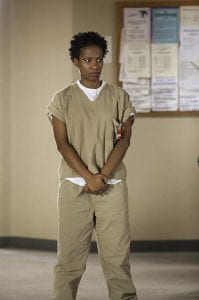
So much beige
Another visual choice that greatly impacts the show is its shot selection. The show uses a lot of close up shots, framing the faces of its characters. This is effective as Orange is the New Black is, at its core, a show that focuses on all of its characters, their stories, and their experiences, with their being in prison serving as merely a plot device. Even during dialogue, characters are often framed individually while speaking, letting the audience focus more on what they’re saying. Another aspect of shot selection the show uses well is intermittent long takes. These are used not to increase dramatic effect as they normally are, but to highlight the monotony of prison life by lingering on more mundane moments.
Orange is the New Black is a show that revolves around its excellent visual design and character development. It may miss the target in terms of short term plot as a result of looking long term, but sticking with the show makes the viewers appreciate its core tenets. Using this, the show makes important points about the prison system and the lives of women, while remaining entertaining.
“‘Orange Is the New Black’ Blood Donut.” IMDb, IMDb.com, www.imdb.com/title/tt2595996/mediaindex?ref_=tt_mv_close.
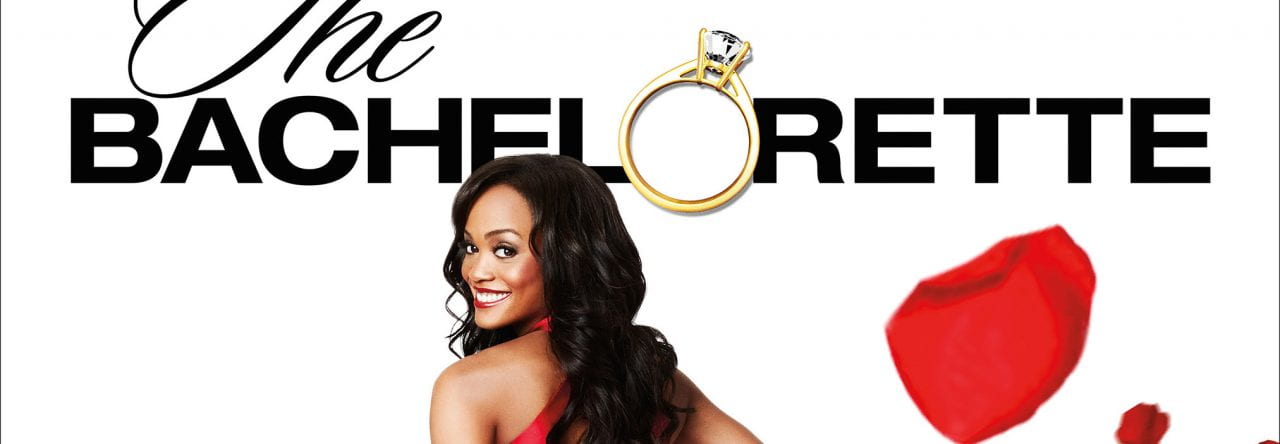

 Dr. Ford’s final salute, as if wishing the humans good luck in the new world he has created.
Dr. Ford’s final salute, as if wishing the humans good luck in the new world he has created.







